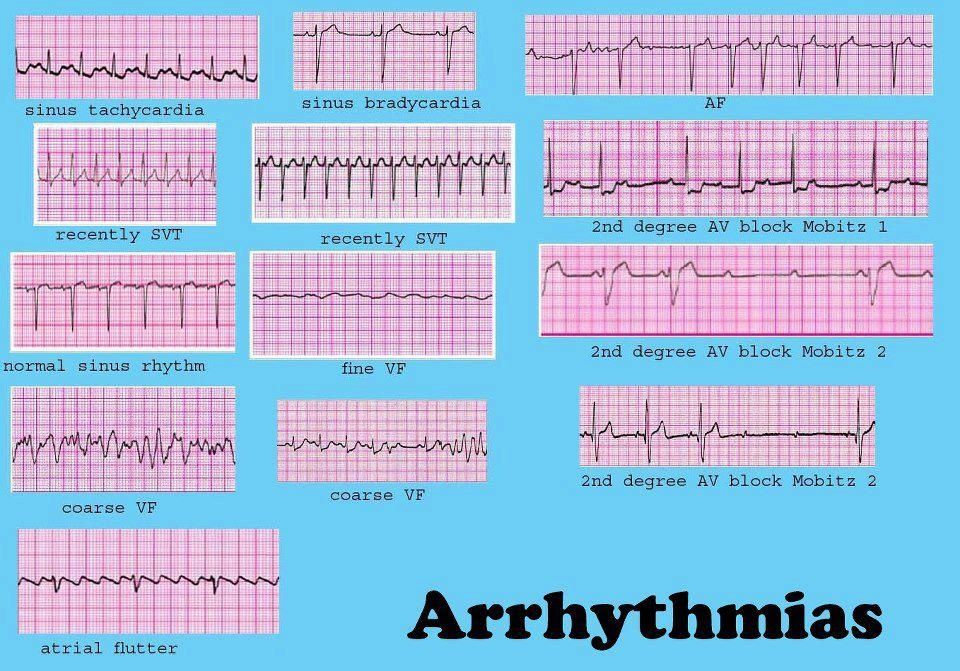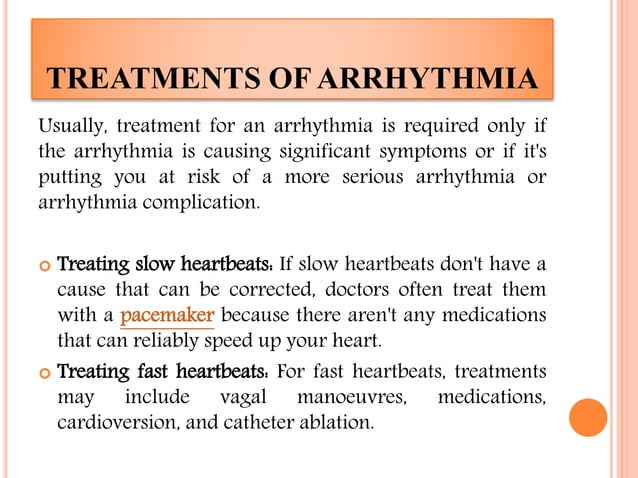Arrhythmia Causes and Symptoms

There are many different types of arrhythmias. These disorders affect the electrical system in the heart and can be caused by many things. Alcohol and caffeine are two common causes. Certain herbal and diet medicines can also contribute to arrhythmias. People who are at risk for arrhythmias may want to change their lifestyle or seek treatment. Some types of medicine can slow the heart rate or prevent arrhythmias altogether.
The symptoms of arrhythmia may not be immediately apparent to the sufferer. Sometimes these conditions are caused by chemical imbalances in the blood or by diseases that irritate the heart. A number of medicines and injuries to the heart can also cause arrhythmias. The most common type of medicine for treating arrhythmias is diazepam (diazepam), but there are also several other medications available that can also be prescribed by a healthcare provider.
A healthcare provider will usually diagnose arrhythmia based on the symptoms and questions that a patient provides. The questions asked by the health care provider will help to build the "patient history." Like a detective file, this history will help the healthcare provider determine the exact cause of an irregular heartbeat. A doctor may also perform a physical exam, which involves hearing the heartbeat and measuring blood pressure. Once a physician has a clear picture of the cause of an arrhythmia, they will work to create a management plan for the individual.
Symptoms of arrhythmia vary, and depending on the type of arrhythmia, it may not be necessary to treat it at all. Symptomatic treatment will depend on the type of arrhythmia and the symptoms. The choice of treatment is determined by the severity and cause of the arrhythmia. There are several treatment options for arrhythmia. A healthcare provider will discuss the options available to you and help you decide on the best course of action for you.
Symptomatic arrhythmia is a type of heart condition in which the electrical impulse is interrupted. An abnormal heart rhythm is characterized by irregular heartbeats. An irregular heartbeat is a warning sign of a medical problem. It can be fatal if not treated in time. For example, if an individual experiences an abnormally long QT interval, their heart is at risk of a stroke. Despite these symptoms, an arrhythmia can be caused by an overactive SA node.

The electrical system in the heart controls the heartbeat. It sends electrical signals to tell the heart when to pump blood. These signals begin in a group of cells in the right atrium and are called sinus nodes. The sinus node increases your heart rate during exercise and emotion. During sleep, the heart rate decreases. Arrhythmia can lead to stroke, cardiac arrest, or heart failure.
Irregular heartbeat is a sign of arrhythmia. This is a symptom of an overactive heart. Symptoms of an overactive heart include an increased risk of tachycardia or abrasions. If the arrhythmia is severe enough, it can lead to a heart attack. It can also be caused by smoking or drinking too much alcohol. If you have symptoms of irregular heartbeat, see your doctor to determine the cause and get advice from the health website https://hopitalcentral.org/.
Although arrhythmias are caused by many factors, lifestyle changes can significantly reduce the risk of arrhythmias. For example, an overweight person may develop symptoms of arrhythmia if they smoke or drink too much coffee. Although these symptoms may not be life-threatening, they can lead to injury if a person loses consciousness during the arrhythmia. Patients may also have trouble breathing, making it difficult for them to concentrate or sleep.
A doctor can diagnose an arrhythmia by observing a person's heart rhythm. This method is known as an electrocardiogram and is the best way to detect arrhythmia. This test is also known as a Holter monitor. It may take up to 14 days for a person to get a complete picture of their heart. This is the best way to diagnose arrhythmia and prescribe the correct treatment.
Although the causes of arrhythmia are difficult to determine, many of them can be treated. One of the most common is irregular heart rhythm. To avoid an arrhythmic episode, a person should lead a healthy lifestyle. The patient may need to take medication for arrhythmia. A pacemaker or implantable cardioverter defibrillator may be required. Ask about lifestyle changes. Working with a healthcare provider can help you improve your health.
